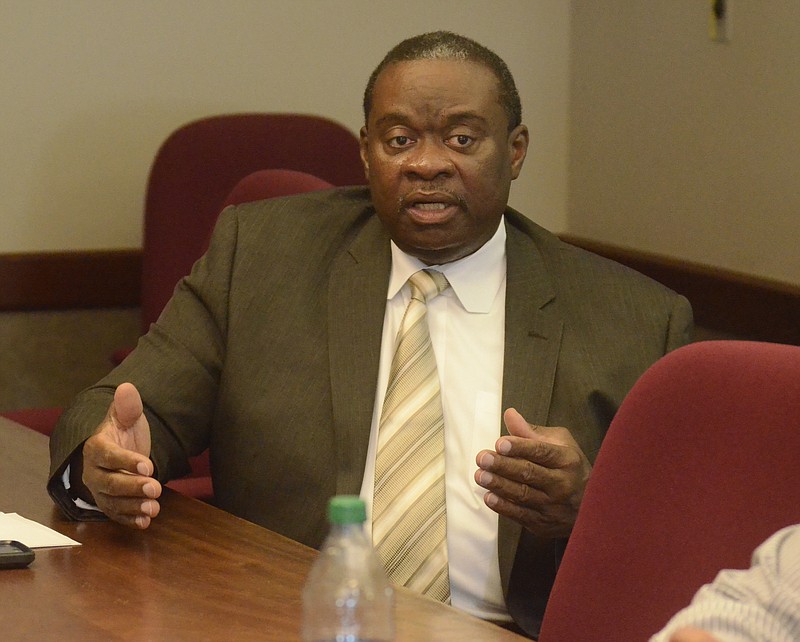The "Ban the Box" push has come to Chattanooga.
In Sunday's Times Free Press, City Councilman Yusuf Hakeem told reporter Yolanda Putman about efforts to introduce a resolution as early as today to ban the box about criminal history on city job applications. Hakeem's efforts have been in conjunction with the mayor's office.
OK, I'm about to surprise some of you who are already halfway to Facebook to call me who knows what, but this is an initiative that has some real merits.
Shocked, right?
Regardless of political leaning, having more people in the workforce and out of the penal system is a good thing for all of us.
Not giving someone who has had a run-in with the law every avenue to stay out of the jail is theoretically forcing them back toward the life that made them criminals in the first place.
For those who hate how much time they spend worrying about crime, nevermind hate paying to catch, prosecute and house those criminals, this is a chance to help them move forward.
They need opportunities to make money, and those boxes far too often are a fast way to shorten the weeding out process.
The National Research Council's recent numbers say the United States already incarcerates almost 25 percent of the world's prisoners. A large number of those people are not going to change, but shouldn't we do what we can to help those who want to?
Heck, according to the NCR's data, Germany houses about 78 people per 100,000 citizens in their country while the U.S. has more than 700 per 100,000. And that's before we round up Winterkorn and the rest of his VW engineer mafia for that emissions cheating scandal. (Kidding. Mostly.)
For those who believe there are too many people on government support, supporting ways to motivate and facilitate those people trying to find gainful employment should make sense.
However, not all state or federal jobs are created equally. Yes, the box could be banned on the primary job application, but why waste the applicants' and the government's hiring staff's time with a universal solution for a problem that craves specifics?
Plus, just like not all jobs are created equally, neither are all crimes.
While banning the box appears to be moving at the government level now, there are some monster employers across the country, such as Koch Industries and Wal-Mart, that are exploring this option.
Some fine-tuning could allow for even more buy-in.
For example, to deny all criminal history is pertinent is shortsighted.
Let's eschew the full peacock stance of each side's back against the wall. If Ban the Box backers say the box allows for universal discrimination, then universally banning the box in all cases says everyone discriminates.
If you think that's the case, then are you prepared to take names off job applications to hedge the bets on whether a candidate's name invokes racism or nepotism? Let's hope not.
There has to be a middle ground - being able to ask about felonies or job-related areas - for widespread support.
Let's not make an issue that has real merit another line-in-the-sand proposition of the dirty business that is partisan politics.
This is a positive first step in a lot of ways, and answering those pesky details early in the process would be a great next step to garner even more support.
Contact Jay Greeson at jgreeson@timesfreepress.com and 423-757-6343. His "Right to the Point" column appears Tuesdays, Thursdays and Saturdays on A2.


